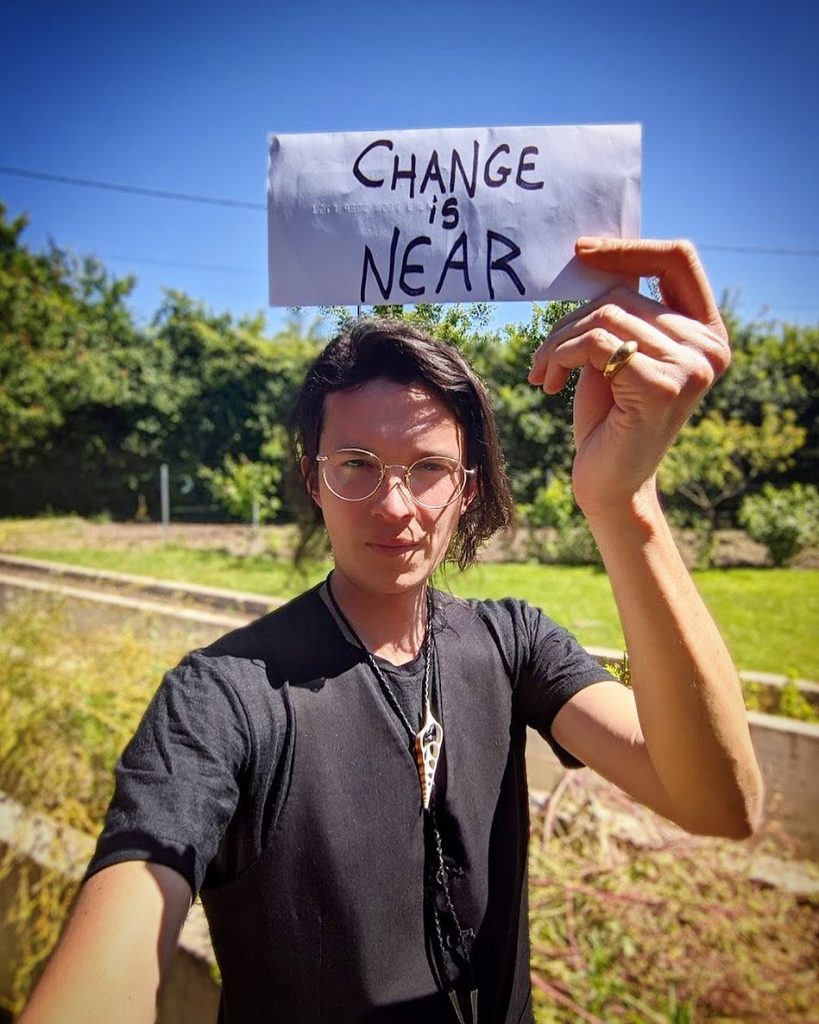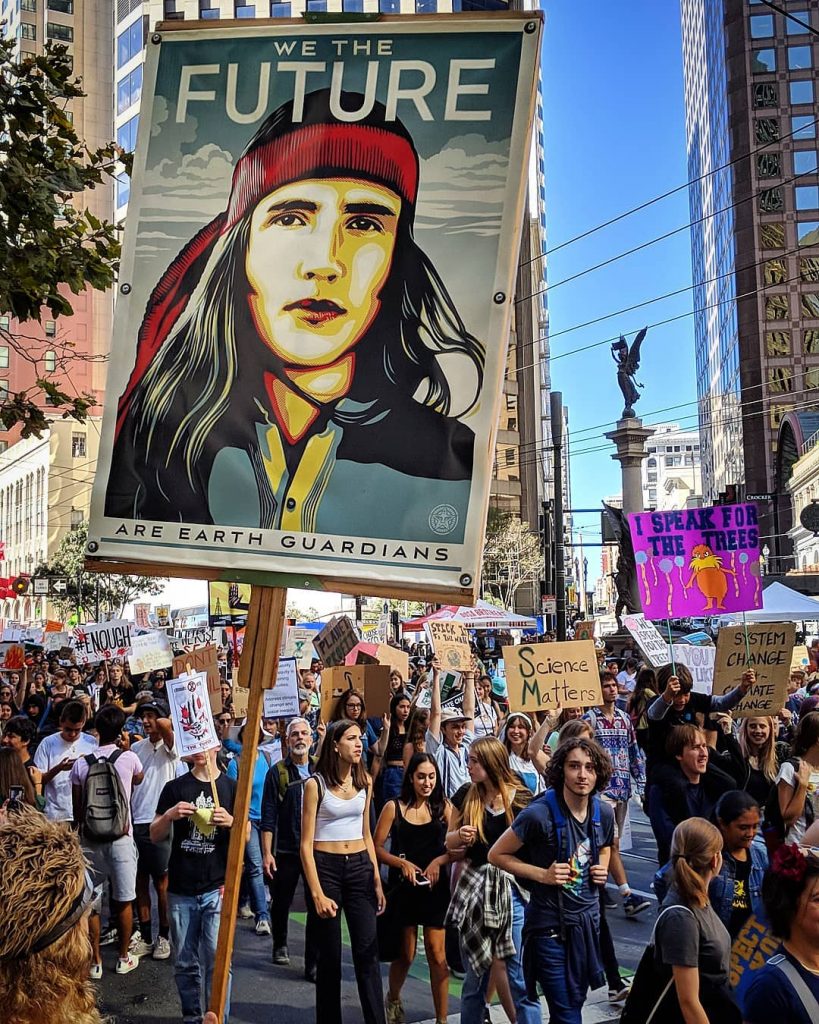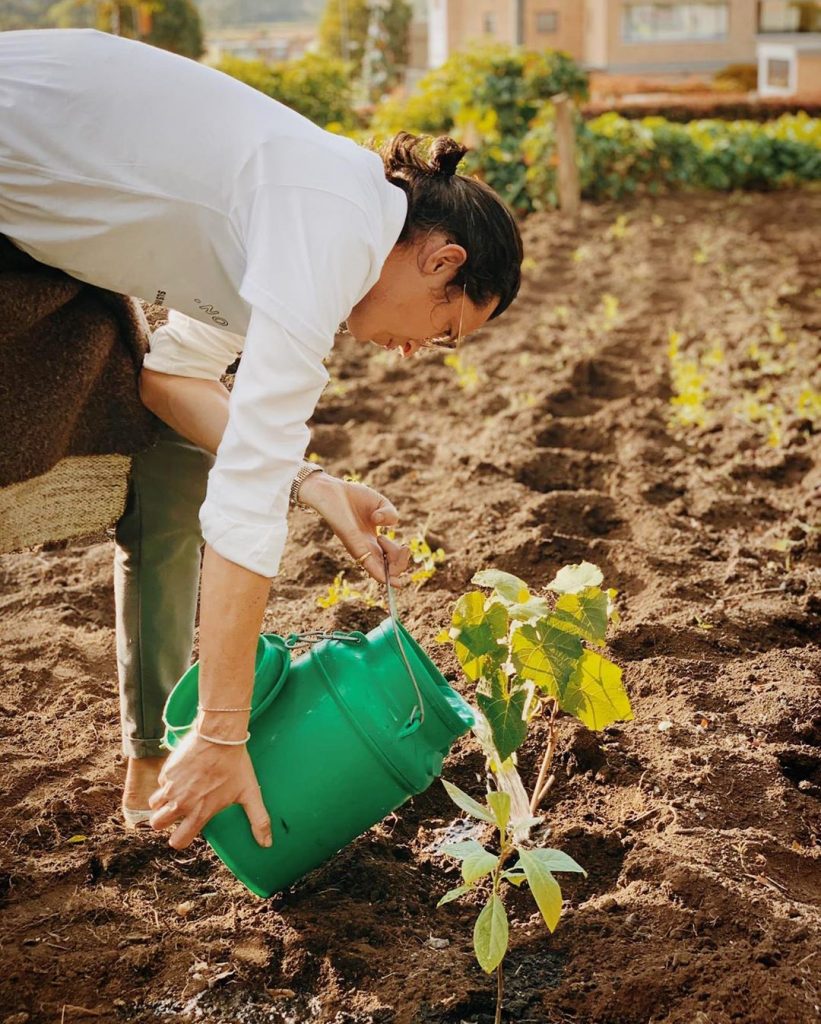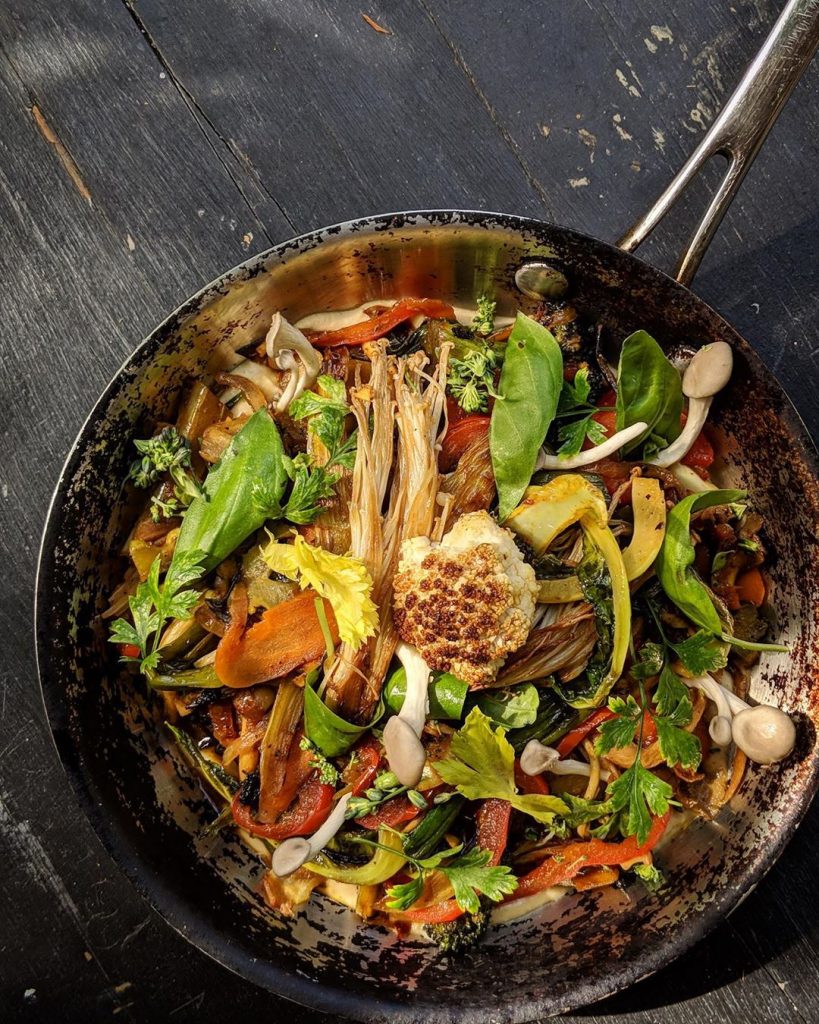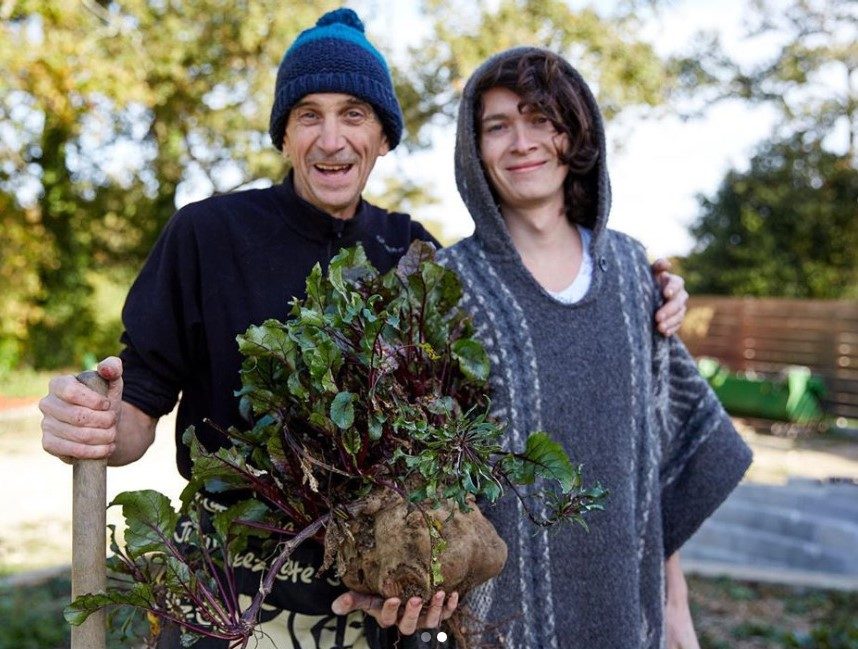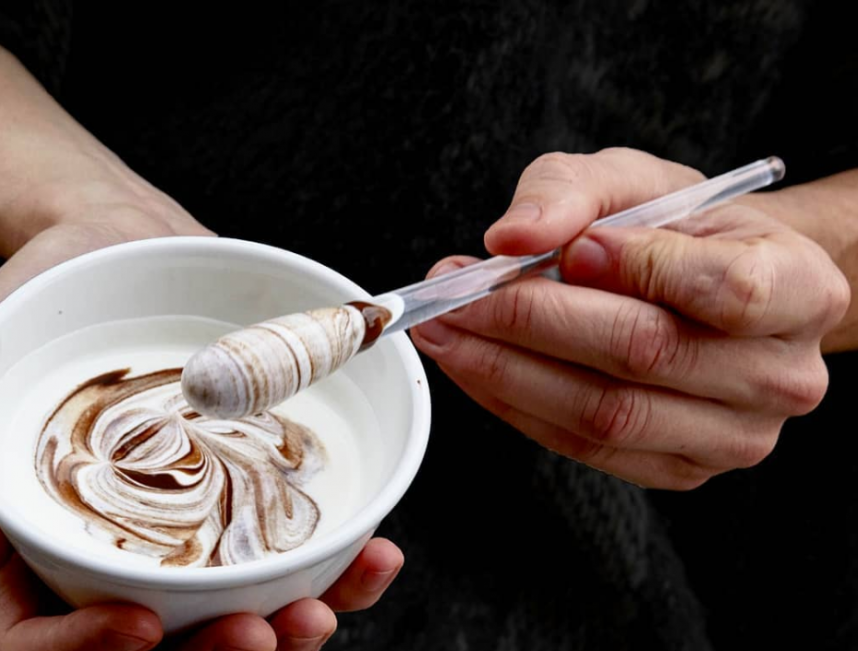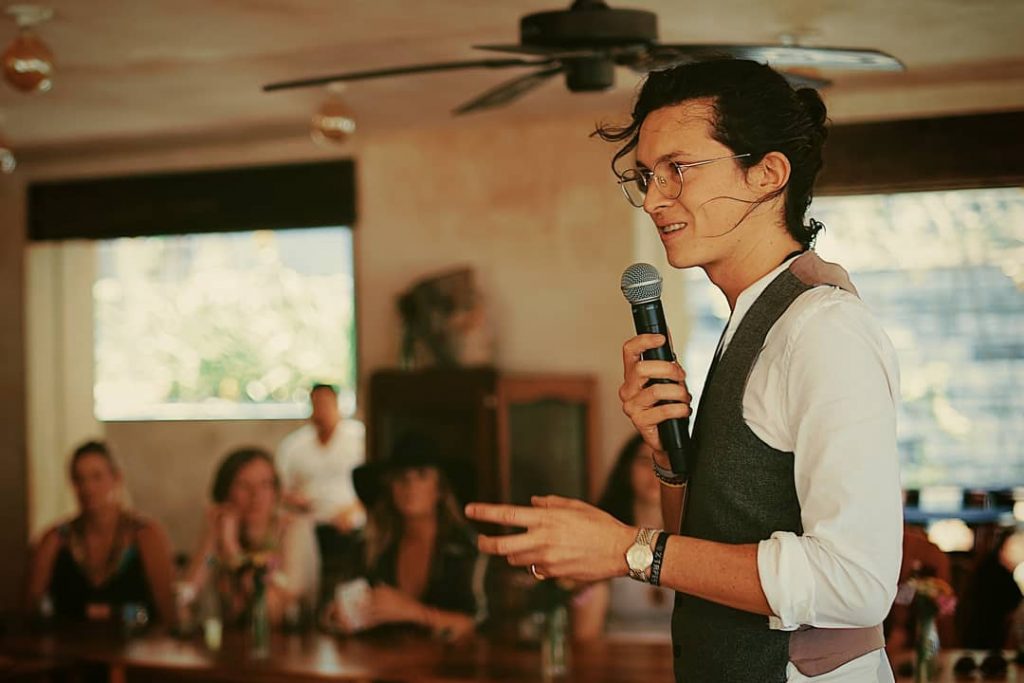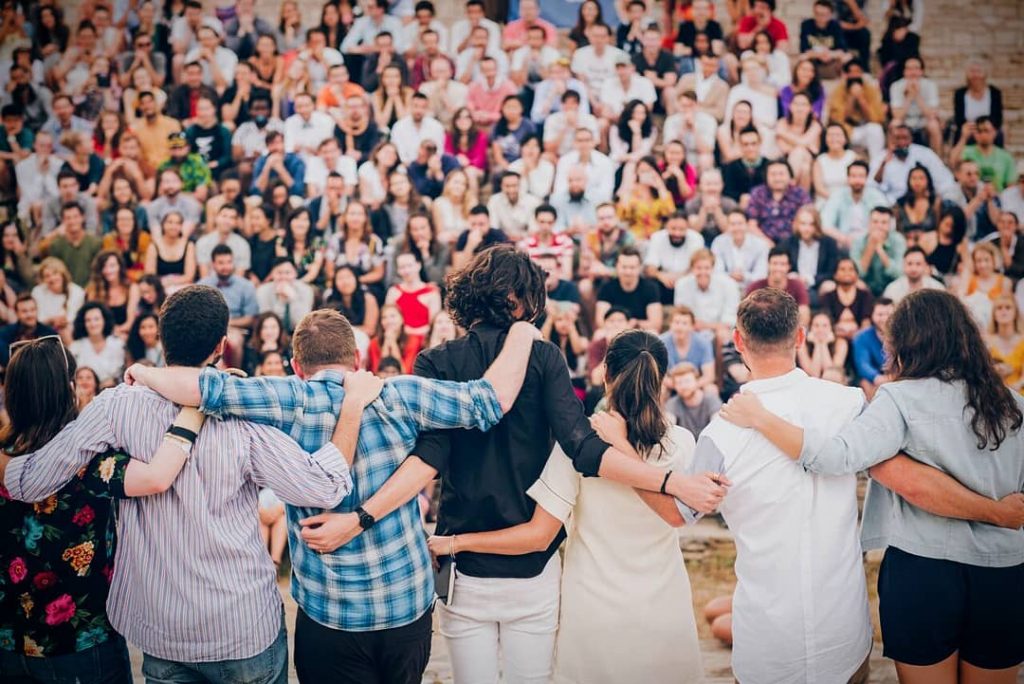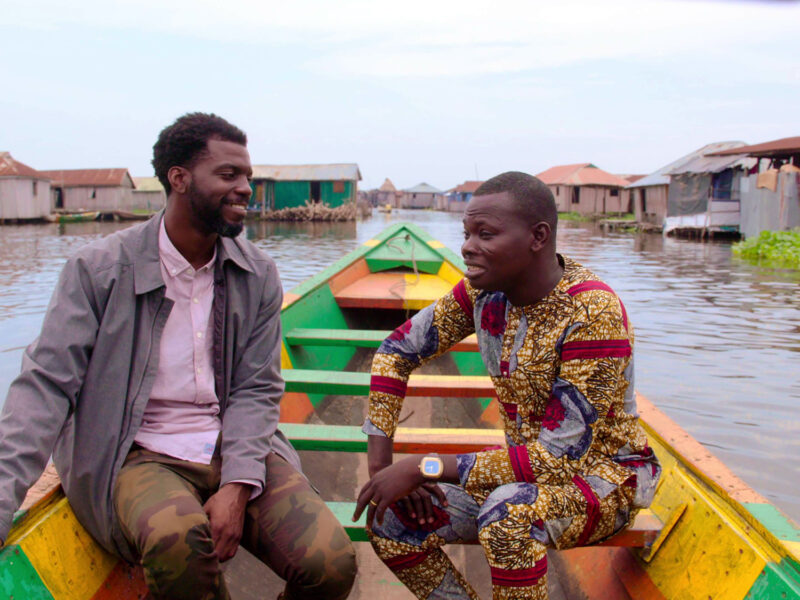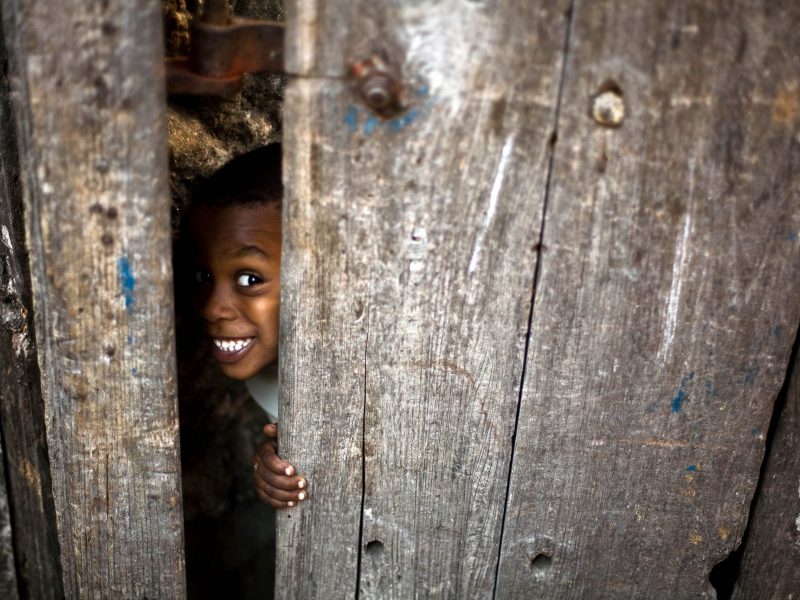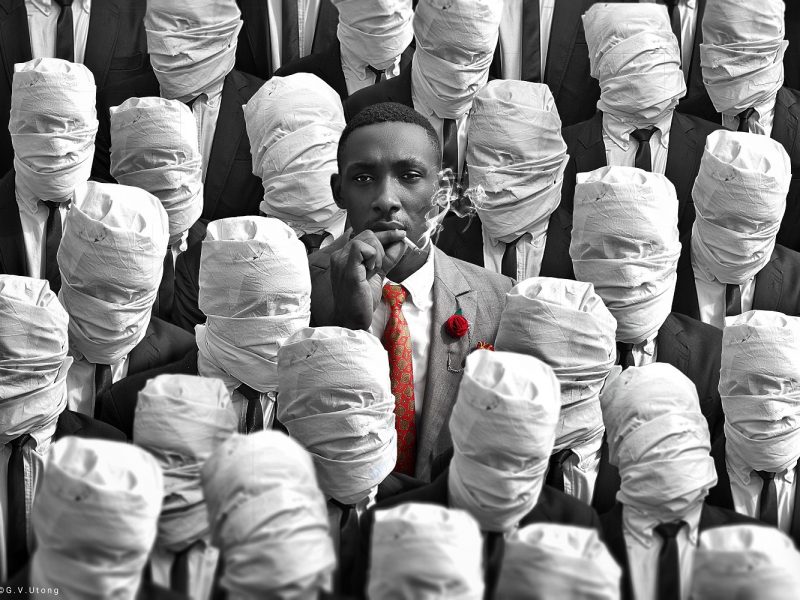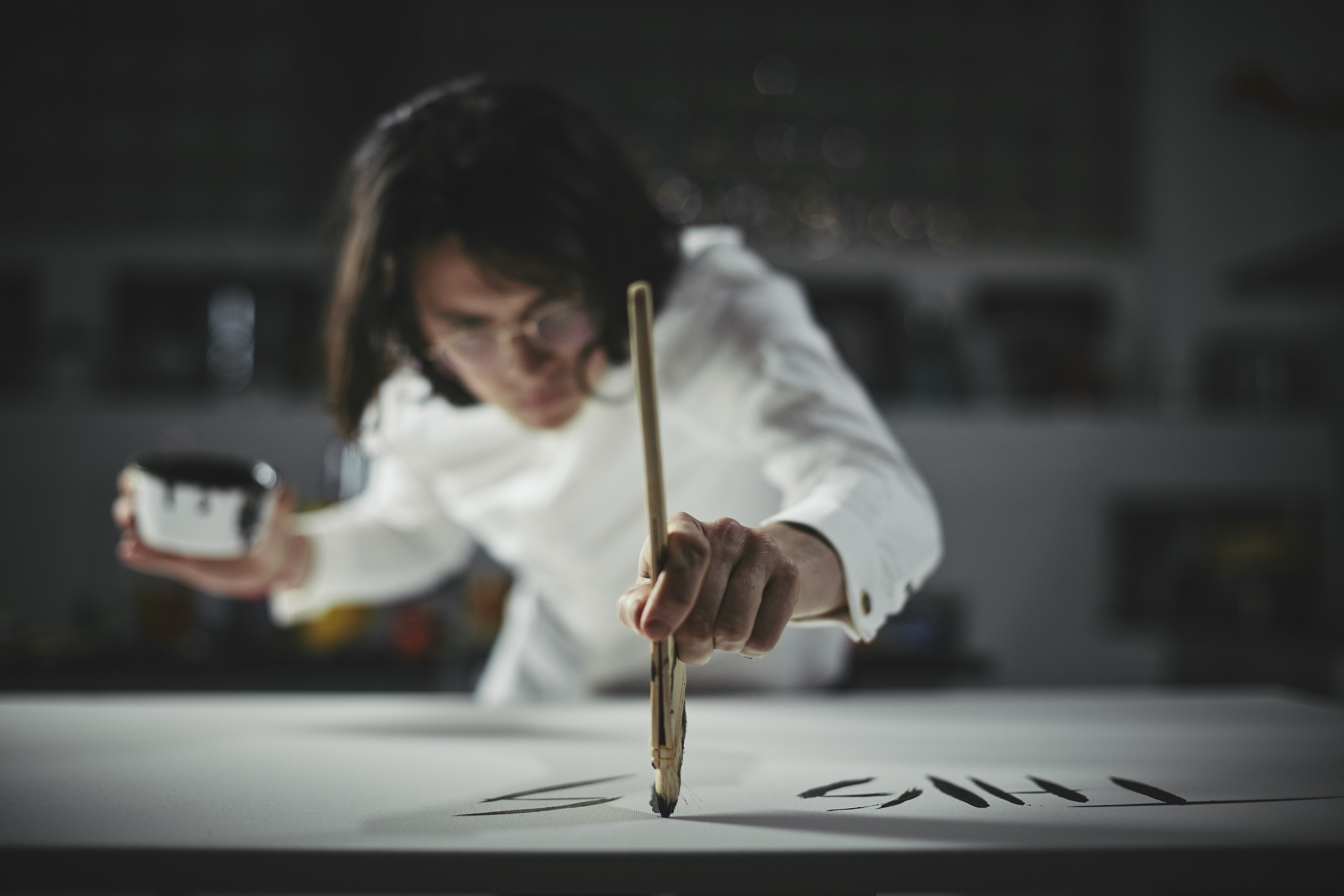
Charles Michel: Save the World by Eating
Cooking is what makes us human, although we rarely think about what we eat, and where our food comes from. French-Colombian cook, scientist and artist Charles Michel is navigating the uncharted territories of our senses and invites us to change the world by eating!
“When you purchase a product, you are actually ‘voting’ for a particular way of growing food and organizing people around natural resources. When I say ‘eating is a political act’, I actually mean ‘choosing food is a political act’.”
What have you studied at school? At times, you seem like “a mad scientist” to me rather than a cook -sorry for saying that!
It’s great! I prefer “the mad scientist” tag. To be honest, I haven’t studied in a conventional way with a university degree and a diploma. I studied 2 semesters (plus training) at the Institut Paul Bocuse to have a diploma in culinary arts. I have always been curious and tried to go deeper in the topics that resonated with me and with who I wanted to become. So, that journey led me to cooking in restaurants. Then I started teaching at schools and learned how to be an educator, by teaching.
After that, I started working with artists and producing events. Through the combination of art and food (two passions of mine), I was invited to make research at Oxford University’s Department of Experimental Psychology, in the Crossmodal Research Laboratory. I kind of studied without studying. I could not be accepted to do a PhD, as I did not have an undergraduate diploma. Still, I was able to make research with professor Charles Spence as my mentor. I published about 15 papers in academic journals, so I became a scientist by training. I got really interested in a few fields of academic research -not only experimental psychology. Thinking about food, art and science opened up my mind about the future of our species and the role of food in it.
WE HAVE 33 SENSES, NOT ONLY 5!
The cognitive side of food seems like an uncharted territory! I’d like to talk about your experience of designing kitchen utensils to elevate our sensation of flavor. In what ways it worked and in what ways it didn’t?
I see a very big gap in design, research and thinking. We live in a world that has been designed mostly in the past century through the forces of industry, market and consumption, in a way often disconnected from our bodies. Since Aristotle, we tend to think that we have five senses. The truth is we might have up to 33 senses!
Really?
That’s what the latest research says. Even if we focus on five senses, how many are we really using every day and how many are we actually paying attention? Are we designing to nourish the senses of touching, smelling and tasting? These have been considered to be lower animal senses for a long time, while hearing and seeing have been considered to be higher senses. That is one of the reasons for our disconnection. We must engage with all the senses, not only to develop better life philosophies, but also better products that can shape our lives.
When I met Andres Fabian, a designer that has a PhD on spoons, he took me to his lab and we started discussing how we could eventually develop new tools to interact with food. We immediately started sketching, connecting the ideas and we created a series of 10 kitchen utensil prototypes that ended up being exhibited at the Science Museum in London for two years. We really achieved to innovate in ways completely novel, and to create almost a new connection to the food we are eating through design. We also made some pre-tests on some of the utensils, like the one called “The Goûte”. It is a spoon that is designed to emulate the pleasure of eating with your fingers. We saw that people found the food to be richer when they used the Goûte, hence they enjoyed more.
What didn’t work was the business part of it. We thought we could also turn this into a commercial venture. Unfortunately, we couldn’t find a CEO, or someone who would lead the entrepreneurial side of it. So, the project went dormant for a few years. Now, we are reviving it, and will probably be launching it again this year with crowdfunding.
EATING IS A POLITICAL ACT
You have not only curated sensory experiences, but some community experiences as well. What kind of gatherings were they? Why is community important to you?
Happiness is related to the quality of our relationships. Three of the illnesses of our times are disconnection from self, from others and nature. The ultimate reconnection would be to live in balance with nature. How do we do that? First, through reconnecting with oneself! Part of my work, like utensil designs, is dedicated to that. Second, through reconnecting to others. The community has played a very important role in my life. I was lucky to be invited to be part of an exciting community of young change-makers in 2014. I became one of the movers in the community. We created gatherings in Kenya, Croatia, Panama, Colombia. We gathered as many as 300 people for 5-day transformational journeys to facilitate personal professional growth.
Why is eating a political act? How could the way we eat provide solutions for our planet’s big issues?
What does “politics” mean? The origin of the word is related to “polis” in Greek, which means “the city”. Politics is how we organize the city. Eating requires us to make choices on a daily basis. When you purchase a product, you are actually “voting” for a particular way of growing food and organizing people around natural resources. When I say “eating is a political act”, I actually mean “choosing food is a political act”.
A significant part of global carbon emissions are directly related to the current food system, where about a third of the food we produce is wasted. There are so many public health problems related to the way we eat, and particularly caused by “mindless eating” without really thinking about food, where it comes from and the impact of our choices. If we become conscious eaters, we can actually use these “votes” to regenerate the planet, choosing better practices in the food system. Eating is the most intimate daily connection that we have with nature and that is why I have focused my attention on “food activism”, because this is one of the most important issues of our time.
FORGETTING TO BE GRATEFUL
What was your “eureka” moment that made you believe that you could change things for better?
I think there have been many “eureka” moments. During my time in Oxford, I realized how little we knew about the senses and how little research was dedicated to understanding food perception. Most of the research that existed was only funded by the industry, meaning that to sell more. Today, if you want to have money for research, you need to have the support of a big corporation. I don’t think that corporations are inherently bad, but they definitely come with ethical problems due to their drive for economic profit, especially in terms of planetary and human health.
The eureka moment came when I realized how much work there is to do with food and how it has almost been forgotten. I asked: “Wait, why the hell are we not teaching food at schools? Why is it like something you only study in higher education?” Biology, mathematics, physics, chemistry, economics -everything you can teach through food. Schools could become cookery schools, where you learn all the rest while you learn to process food and feed yourself. That’s the vision I have for the future.
Do you have a specific cooking style?
I often struggle to be put into boxes. I don’t have a single style, as it changes depending on the day, the mood, and the occasion. On the Netflix show Final Table, I was manifesting a style to give a very particular message with my partner Rodrigo, but it’s not always like that. I have no cooking style, but a cooking philosophy, which is “immediacy”. That can take many, many shapes depending on what’s happening around me, what ingredients I have, where on the world I am and for whom I am cooking.
What are your favorite ingredients for cooking?
My favorite ingredient is hunger. When we are hungry, we pay attention and we are more grateful for what we have. One of the most important things that we have forgotten about food is “gratitude”, because we don’t realize anymore how hard and lengthy the process of growing food is. We don’t realize how many people are involved in producing a single grain of rice. We don’t realize its impact on water consumption and pollution, as well as the energy consumption for production and for transport. I think we’ve forgotten to be grateful. The most incredible food experiences are not necessarily the ones in a three Michelin star restaurant, but they are usually the simplest ones. It comes when you are in the wild and eating straight from the source. Sometimes it comes when you pick a tomato from the garden. You feel the warmth of the sunlight, you smell it, put a tiny bit of salt and a leaf of basil and put it in your mouth. Hımmm. Delicious! Right? It’s not about the food seen as a craft, but rather food as an active nurture or a gift.
ROOTS GOING BACK TO LATIN AMERICA
You seem to have a special relationship with your father. We occasionally see him as a supporting partner on your online educational videos. What have you learned from him as a beekeeper?
Oh, I could talk about that for an hour! My father has been a great source of inspiration, because he has been unapologetically connected to nature as far as I can remember. I often talk about my father, but my mother has equally been important in terms of the sense of justice and fairness she taught me. So they are a beautiful complement, although very different. I’ve learned to confront my biggest fears and traumas with my dad, because we do inherit from our parents the things that form our shadows, as well as the good sides.
I think the greatest learning from my dad has been confronting the things that I like the least about myself! The work that we’ve been doing lately on Instagram has been amazing and helping us heal our relationship. A lot of folks really love him. He is a beekeeper, which is an amazing craft. We’ve been working with bees for over ten years. It’s a lot of work, but it’s an incredible animal species and we owe a lot to them. They bring lots of medicine and energy from flowers to us: they bring the pollen which has protein, the propolis which is an antiviral preventive medicine, the incredible superfood royal jelly, as well as wax and lacto-fermented pollen, which is really good for our guts. I think a city or any human nucleus should never go without a hive. Our symbiotic relationship with bees is one of the best examples of life thriving.
You are half French on your father’s side and half Colombian on your mother’s side… How do your Latin American roots feed you?
Yeah, very deeply… You used the right word: “roots”. My grandfather was an indigenous man from Colombia. So, one forth of my bloodline is native American. That has meant a lot especially after growing up and understanding where I come from. I’ve always been very sensitive to injustice, especially when it comes to the rights of nature, but also the rights of people. What happened in Latin America with the colonization was nothing short of genocide. There’s not much left alive in Latin America from my grandfather’s culture. It’s been lost. It was transformed by Catholicism and the Spanish Inquisition -stolen and slaughtered in a way. I have a very deep connection with Latin American cause, as I think that it is an incredibly rich continent in terms of biodiversity and cultural diversity. Most of the medicines that are used in today’s world come from the Amazon forests. Of course, the indigenous cultures are still under threat. As human society, we have to protect the ancient wisdom of these peoples who have always lived in balance with nature, unlike most of us in modern civilization.
TRANSITION FROM EGO-SYSTEMS TO ECO-SYSTEMS
Who are your “natural allies” (or people who you resonate with) in life?
There is this idea that you are born into a family, but you also can choose your family during your lifetime. One of the most important aspects of being human and living a good life is creating that “tribe”, or your chosen family. I think it is related to the concept of “Sangha” coming from the Eastern philosophies. Sangha is your spiritual community, or the people you connect deeply so that you are aligned on life missions. I mean, the people you would create a village with!
I am very lucky to have an incredible group of humans that I call my family. They are spread all over the world: all doing really incredible work. There are filmmakers, activists, systems thinkers, politicians and artists. They are a constant source of inspiration and we challenge each other to be better.
Do you think 2020 will mark a special time in transition from “ego-systems” to “eco-systems” in your own words? How do you think we could stop or train our egos?
It’s not about stopping the ego. It’s about putting them in the right place. You cannot exist without everyone and everything else. You and I are breathing right now, because some plants exhaled oxygen as they were absorbing sunlight! We are one with that plant. Otherwise, we would not exist. You know what Descartes said: “I think, therefore I am.” That’s a very mind-centric approach to me. I’d like to say: “I am, because we are.” This idea of inter-being is fundamental to designing a thriving future for humans.
I think there are many manifestations of this transformation undergoing. We saw all these activists and kids going down to the streets for climate change in 2019. These things were blossoming all around the world. Now we have a crisis that allows us to see things from a different perspective with more humility, as we realize our inter-connectedness.
The UN had proposed a framework for sustainable development goals (SDGs). NGOs, businesses and governments around the world are now aligning on the 17 sustainable development goals for 2030. There is a sense of urgency, because it is truly an existentialist crisis. It’s not like, “Oh, it would be good to change”, but more like “ Oh, if we don’t change, we are screwed!” Some people might tend to think that the situation is not so bad. But this big machinery that has been working in certain ways in the past decades is not working now, if you look at it from a systemic perspective. This is why I think we are shifting from ego-systems to eco-systems. Ego-systems have a pyramidal structure, where certain types of humans or organizations are at the top and all the rest is underneath. In eco-systems, the pyramid transforms into a circle, where we are all equal and collaborating for life to thrive for human beings and all the rest.
CHARLES MICHEL’S UTOPIA
We have dedicated this issue of our magazine to “Utopia”. I know that it has been an ill-reputed, dreamy concept at times, but I will ask anyway: How would your Utopia look like?
Let’s look at the origin of the word. Utopia means a place that cannot be or that does not exist. I want to dream Utopia as a place that can exist, though. I will get into a polemic here, but imagining the planet Earth without humans would be very close to Utopia. Being a group of people witnessing a planet without humans is completely not possible. That’s the Utopia!
No, that’s my Utopia!
But then it becomes tricky, right? I like the idea of a realistic Utopia, so I would like to propose a different word: Sitopia. It is a concept put forward by Carolyn Steel, a great British thinker I admire a lot. She wrote a book called Sitopia: How Food Can Save the World, which I am reading nowadays. The word comes from “sitos” (food) and “topos” (place). My dream would be a self-sustaining city that produces all the food it consumes. I think this is what some thinkers call Utopia, but it is not impossible! We have all the technology required, and there are even people dreaming of this. I am a hundred percent sure that we will witness in our lifetime the rise of an eco-system or a network of sustainable villages all around the world.
The last question then: Which track would you listen to on a seemingly “hopeless” day to cheer up?
When I need to focus or to lift myself up, Ravel’s Bolero always works. Different directors have different interpretations of it and I never get tired of listening to it.
Charles Michel’i takip etmek için: charlesxmichel.com ve @charlesxmichel
 English
English




